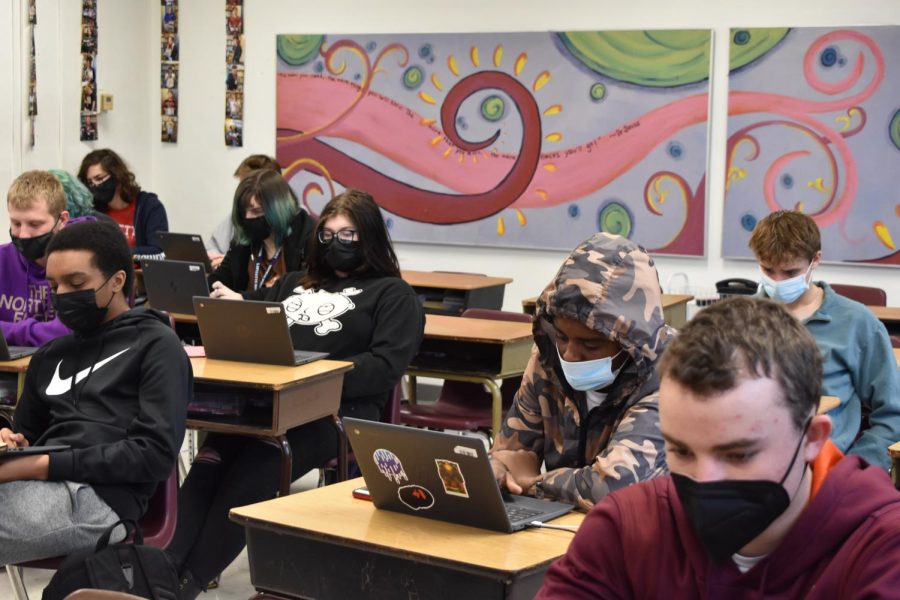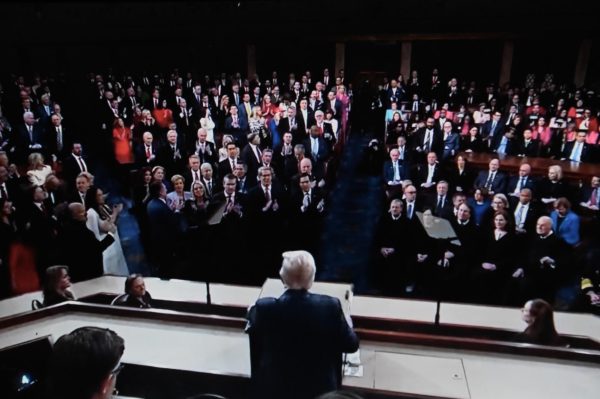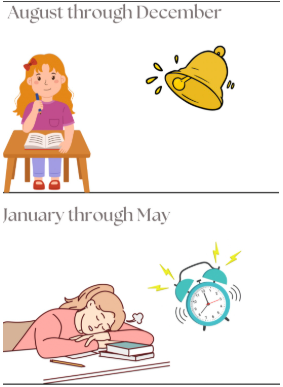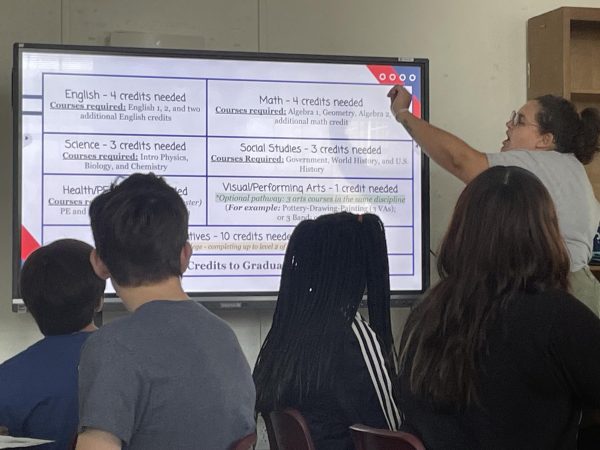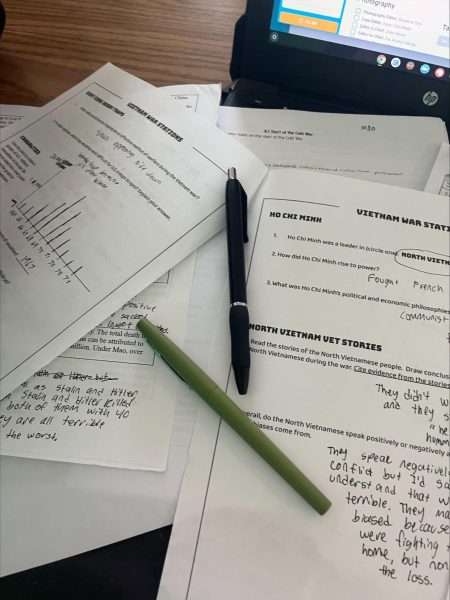Should Standardized Tests Be Abolished?
Mrs.Writes Visual & Performing Arts class.
One of the most popular complaints of disgruntled teens throughout the media and in the average classroom is that school sucks. Most people agree that the school system today is far different than how it was when our generation’s parents were in school, but the underlying reason for that difference is actually responsible for standardized testing, one of the most debated parts of school.
In the 90’s, a campaign with the slogan No Child Left Behind (NCLB) gained enough momentum to reach the White House. President George W. Bush signed it in 2001 to put the reform into place. The entire reasoning behind this reform was that each grade would be judged by the same standard, and the goal for each school year was to learn up to that standard. But is the test enough incentive to help students learn? According to Meredith Dill, an English and AP teacher here at Lafayette, no. “Students are smart,” she says, “and they can tell when something isn’t meaningful.” The obvious problem with that is that it isn’t progress that’s tracked, it’s level of knowledge. Each student’s individual growth is irrelevant so long as they meet the requirements, and the result is a year of test prep so that students can be pushed through the system.
Dill was in middle school when the bill went into effect. She remembers a major shift in focus as testing became the end goal of the school year. “I think there was a pretty big stigma for not being proficient or distinguished,” she says. And the shift makes sense.
Schools that weren’t showing signs of improvement within five years were given a “lobotomy,” given the phrasing used by Tom Ahn, who works as a professor at the University of Kentucky, to NPR. Essentially those in charge would be replaced, resulting in an entirely new hierarchy within the school. Somehow, this was shown to be the most successful measure taken by NCLB.
The required curriculum is often not engaging enough to prepare students for the test. According to Dill, Lafayette is lucky in teachers being able to have freedom to teach content in meaningful and creative ways. Schools without that ability could perform worse because, again, students are smart and can tell when something doesn’t matter. She also holds that standardized tests aren’t accurate measures of student achievement. There are any number of factors that contribute to student performance.
In terms of tests, not all of them are bad. According to Edutopia, quizzes catered to recent lessons are often very useful in helping students to retain information. These tests are also much shorter and less stress-inducing on students, so their performance is going to be superior to those of lengthy standardized tests.
Another important factor in consideration of this is the rise of technology. The use of computers and similar tools has increased drastically from the level of use in 2001 when the NCLB bill was signed. Again, this bill was the introduction of highly emphasized standardized tests throughout grade levels. Not only are computers more advanced and more widely available, over the past few years we have grown strongly reliant on them. In March 2020, school was moved online for nearly a full year. Our classes are still, for the most part, online using Canvas. Odds are every student uses their chromebook at least once in every class of the day.
So what does this mean about testing? Technology has allowed us to transform the style of teaching and learning in a way that NCLB wasn’t able to. Though we certainly haven’t improved grade averages, the near requirement that technology be a part of every class has revolutionized the way we learn to be a lot more interactive. Students are able to do research for classes without going to the library. We can be assigned Edpuzzles, which utilize the type of assessment we established earlier to be actually helpful in the learning process.
Essentially, learning is more interactive because we aren’t just learning about vague concepts. We’ve been given the opportunity to see how it relates to real life via our chromebooks and how they’re used in class. Dill says she’s grateful for the way teachers were forced to embrace technology over the past couple of years.
With this, the rise of “here and now” learning, standardized testing is almost obsolete in comparison. Assignments don’t have to be about everyone sitting down and doing their worksheet in silence, because we have platforms that allow collaboration in a way that NCLB caused us to lose sight of.
It may seem like a stretch to place this much emphasis on the use of technology in the classroom. However, the reliance on technology rose up as a solution to a crisis scenario where we weren’t able to be at school at all. Much of the administration, especially higher up, is still in crisis mode just trying to make everything work. Once all the focus is no longer on keeping the gears turning, administrators will be able to give it a little oil. Utilizing technology to its full potential could mean collaborating with students and teachers from other schools, meaning quality of education won’t be limited by location. There could be better ways of tracking student progress with personalized coding rather than a standardized piece of paper. Students could be introduced to more programs to cater to different learning preferences.
Education bills are already revisited at least once every decade due to new developments. Dill says there should be constant evaluation. “As we are able to progress, the bills should also be able to progress.” And the testing requirements aren’t the only thing that she thinks should be revisited in the bills. As far as she is aware, the current bills don’t say anything about inclusion in the classroom. “Shakespeare was mentioned in the requirements, but there are a lot of people who are not Shakespeare, and are not white, who should be mentioned.” This means that there’s a good chance of the laws being revisited, as education is fluid and always changing.
If technology is raised to its full potential in the classroom, a higher priority will be placed on giving access to lower advantaged schools. With this resource, student engagement will skyrocket, because there are limitless ways to encourage learning while making it interesting to the students. As much as the curriculum wants progress to be linear, it isn’t. Students should be allowed to reflect that without fear of failure.

Claire Cornett is a junior at Lafayette interested in student-led stories and events. She's involved in choir and history club. She is also heavily involved...

Afnan Taha is a senior at Lafayette. She is interested in politics and current social media events/trends. This is her first time writing for the Lafayette...

